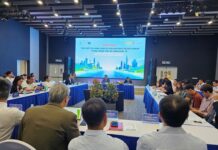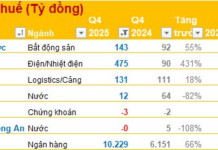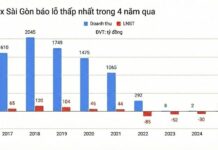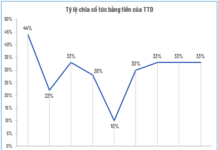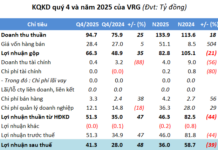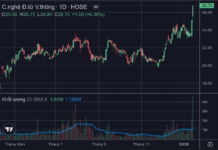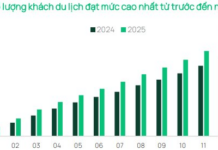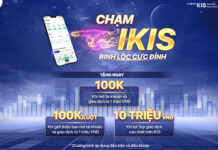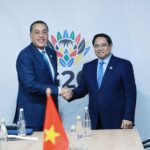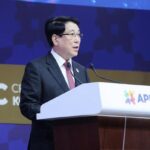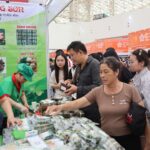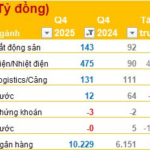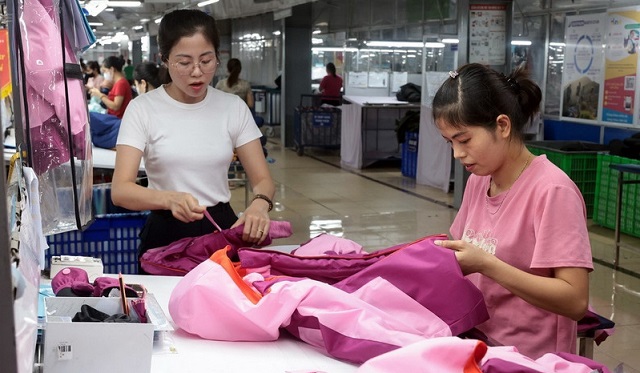
Garment exports to the EU market at TNG Garment Company (Thai Nguyen). (Photo: Tran Viet/TTXVN)
|
On November 26, the Ministry of Industry and Trade announced that the 18th negotiation session of the Free Trade Agreement (FTA) between Vietnam and the European Free Trade Association (EFTA) is taking place in Da Nang from November 25 to 28.
The Vietnamese negotiation delegation is led by Deputy Minister of Industry and Trade Nguyen Sinh Nhat Tan, who serves as the head of the government’s negotiation team.
In his opening remarks, Deputy Minister Nguyen Sinh Nhat Tan emphasized that the choice of Da Nang, a dynamic economic hub and the first locality to establish a Free Trade Zone, reflects Vietnam’s strong aspirations and determination in the process of integration and participation in FTAs.
Both parties share the goal of striving to substantially conclude negotiations during this session and are prepared to demonstrate the necessary flexibility to ensure a balanced agreement that benefits both sides.
After the first day of negotiations, Pham Hung, Deputy Chief of the Office of the Steering Committee for International Economic Integration—the support agency for the government’s negotiation team—stated that both sides are actively working to narrow differences, and the 18th session is progressing very positively.
While trade relations between Vietnam and EFTA, comprising Switzerland, Norway, Iceland, and Liechtenstein, have not yet reached the scale of those with other top partners, they are highly complementary.
According to year-end 2024 data, the total bilateral trade turnover between Vietnam and EFTA surpassed $3.5 billion, with steady growth over the years.
Vietnam’s primary exports to these markets include key products such as footwear, textiles, machinery, electronics, and agricultural goods like coffee and cashews.
Conversely, Vietnam imports mainly high-tech and value-added products from EFTA, including pharmaceuticals, precision machinery, medical equipment, and chemicals.
The trade strengths of each EFTA member country create a diverse and highly promising market for Vietnamese goods and services. Switzerland is a global leader in finance and biotechnology, with advanced industries in chemicals, pharmaceuticals, manufacturing, and banking services.
Norway is renowned for its energy sector, seafood (particularly salmon), and cutting-edge maritime technology. Iceland excels in geothermal energy, seafood processing, and eco-tourism. Liechtenstein serves as a significant financial hub and boasts a robust precision engineering industry.
Despite EFTA’s population of just over 13 million, it ranks among the world’s wealthiest economic blocs. With a combined GDP exceeding $1.1 trillion and an average per capita income of approximately $85,000 annually, the market’s purchasing power is substantial, though it demands high-quality products.
Notably, the bloc’s total merchandise trade volume nears $700 billion, indicating vibrant commercial activity. Additionally, EFTA is a major global investor, with foreign investment assets totaling nearly $2 trillion.
Given these clear economic benefits, the Da Nang negotiation session focuses on resolving outstanding issues with transparency, practicality, and flexibility from both parties. The swift finalization and signing of this agreement will enable both sides to effectively navigate the complexities of the global economy.
Uyên Hương
– 14:55 26/11/2025
Comprehensive Joint Statement: Vietnam-U.S. Agreement on Reciprocal, Fair, and Balanced Trade
The United States of America (USA) and the Socialist Republic of Vietnam (Vietnam) have reached a consensus on the Framework for a Reciprocal, Fair, and Balanced Trade Agreement. This agreement aims to strengthen bilateral economic ties, fostering enhanced market access for each country’s exports. Building upon the longstanding economic relationship between the two nations, the Reciprocal, Fair, and Balanced Trade Agreement will expand upon existing foundations, including the U.S.-Vietnam Bilateral Trade Agreement signed in 2000 and effective since 2001.










